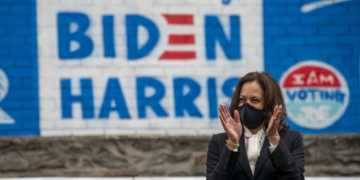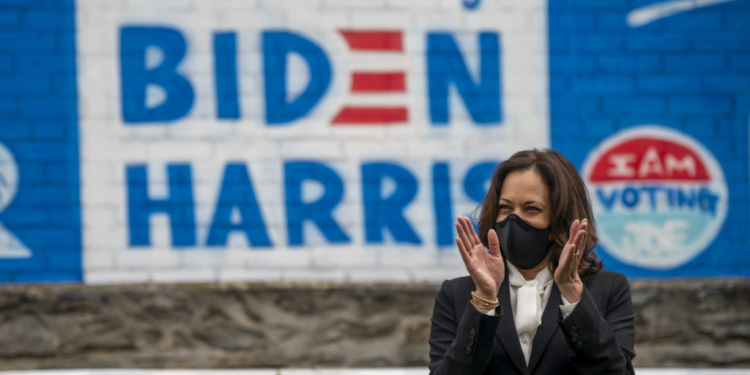MSNBC reporter Steve Kornacki said Friday that Vice President Kamala Harris had more options to secure the 270 electoral votes needed to win the presidential election than President Joe Biden did.
Harris accepted the Democratic nomination for president Thursday, just over a month after President Joe Biden dropped out of the race and endorsed her on July 21. Kornacki said that Harris’ improvement over Biden with black, Hispanic and young voters gave her a chance to compete for North Carolina, Nevada and Arizona against former President Donald Trump.
“As Joe Biden was getting out of the race, this is what the polling was showing. He was down three points on average against Donald Trump. Now, about a month of Kamala Harris as the new democratic candidate, on average Harris up two. So, from Democrats down three to Democrats up two,” Kornacki told MSNBC host Andrea Mitchell. “What is behind that move forward for Harris in the polling? Three groups in particular where she’s performed exceptionally better than Biden had been performing, and they are voters who Democrats have in the past relied on that Biden had been lagging with. Black voters, Harris is running eight points better on average than Biden. Hispanic voters, 10 points better than Biden. Young voters under 30, Harris [is] 11 points better than Biden.”
WATCH:
Trump received 17% support from black voters in a CBS poll released Sunday and 26% of the black vote in a Fox News poll released Aug. 14, figures much higher than the 12% he received from black voters in a CNN exit poll in 2020. More than one in five black voters said they were backing Trump in a Morning Consult poll, according to Newsweek.
“What would that translate into in terms of this road to 270 map that we’re going to be returning to so much between now and November?” Kornacki said.
Kornacki noted that the number of battleground states had increased with Harris’ polling boost.
“There’s North Carolina, Democrats have been talking all year about trying to make this a battleground. They were talking about that when Biden was the candidate, but now with Harris as the candidate, partly due to the improvement in black support that you see in the polls there, North Carolina, there’s been a couple polls showing a dead even race, maybe even Harris ahead very, very slightly in the polling there. Suddenly, you could put North Carolina in that battleground,” Kornacki said.
The improvement for Harris among Hispanic voters puts states like Arizona and Nevada into play as well, according to Kornacki.
“For Democrats when Joe Biden was the candidate, it was a real narrow path that they had been left with. Biden was going to have to win, Democrats were going to have to win, Wisconsin, Michigan, Pennsylvania and you can see with those three, it would get them to 270 exactly. Not an inch to spare. They would have to win all three,” Kornacki added.
“But, with Harris and those improvements we have seen demographically for her, to have a Nevada, to have Arizona, to have North Carolina potentially, really potentially in play, it could relieve some of the pressure on Harris and Democrats in those great lakes, Big 10 states, and open up a sunbelt path. It means a month into Harris as the Democratic candidate, there’s more pathways potentially for Democrats. We will see as the convention ends and the real general election takes off, how does that evolve from here? Does that remain the case? Does Trump make gains? But, for now, more paths for Democrats,” Kornacki said.
Harris currently holds a 1.5% lead over former President Donald Trump in a national head-to-head matchup, according to the RealClearPolling average of polls from July 31 to Aug. 21, which increases to 2% when Green Party candidate Dr. Jill Stein and independent candidates Robert F. Kennedy Jr. and Cornel West are included in surveys.
All content created by the Daily Caller News Foundation, an independent and nonpartisan newswire service, is available without charge to any legitimate news publisher that can provide a large audience. All republished articles must include our logo, our reporter’s byline and their DCNF affiliation. For any questions about our guidelines or partnering with us, please contact licensing@dailycallernewsfoundation.org.


























